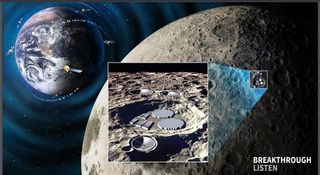
**Book Review: *Our Moon*: *A Human History* by Rebecca Boyle**
In the current literary landscape, there is an abundance of publications that delve into the celestial marvels of the Moon. Among these, Rebecca Boyle’s *Our Moon*: *A Human History* strives to forge a combination of scientific exploration and cultural narrative that intends to lead its readers on a lunar journey. Based on the accolades from reputable authors such as Ed Yong and Chris Hadfield, one might anticipate a thoroughly researched, scientifically sound, and engaging recounting of humanity’s profound connection with its extraterrestrial companion. Unfortunately, this anticipation dissipates quickly upon engaging with the actual content of the book. With multiple historical inaccuracies, oversights, and inadequately researched segments, Boyle’s work regrettably leaves a lot to be desired.
### Misleading Endorsements
The enthusiastic endorsements adorning the book’s cover from individuals such as astronaut Chris Hadfield and science writers like Lewis Dartnell elevate any reader’s expectations. It’s easy to assume that the book has gone through extensive fact-checking and editorial scrutiny. However, it is concerning that even the most fundamental historical facts seem to have been overlooked.
I question whether any of the notable endorsers truly read the book in its entirety. For instance, Ed Yong’s assertion that the book is a “riveting feat of science writing” appears entirely misplaced. Boyle’s depiction of the history of astronomy is so inaccurately represented in parts that it resembles a factual “disaster zone.”
### A Missed Chance on Babylonian Astronomy
Boyle’s examination of ancient Babylonian astronomy exemplifies the shortfalls of the book. She presents a peculiar, overly reductive, and incoherent narrative, focusing primarily on the Moon goddess cult associated with the Neo-Babylonian King Nabonidus while almost entirely ignoring over two millennia of significant Babylonian astronomical legacy.
It seems that Boyle’s narrative simplifies Babylonian astronomy into a misrepresented trope of astrology and “sky priests,” highlighting Nabonidus’ moon cult. In doing so, she overlooks the broader contributions of Babylonian astronomers to the comprehension of lunar cycles, planetary movements, and eclipses. Contrary to Boyle’s assertions, there exists a strong consensus among historians of astronomy that Babylonian sky-watchers employed rigorous empirical methods, which can be considered “scientific in the contemporary sense.”
Her writing even includes glaring oversimplifications, such as claiming that the Mesopotamians “invented religion” 2,500 years ago. While religious thought certainly developed in Mesopotamia, claiming they were the first in history to create religion is an overly simplistic and, frankly, erroneous assertion. To compound this issue, Boyle frequently merges Babylonian astronomy with Persian achievements, indicating either a lack of diligent research or a conscious disregard for historical accuracy.
### Anaxagoras: Elevated without Depth
The issues proliferate when Boyle addresses the pre-Socratic philosopher Anaxagoras. She claims he signaled the advent of modern science purely because he supposedly “discovered” that the Moon reflects the sun’s light. However, this oversimplifies and, worse, distorts the intricacies of ancient Greek philosophy. The actual historical record regarding Anaxagoras is limited and largely transmitted through fragments over centuries, hindering a complete understanding of his contributions. Boyle fails to portray the bigger picture here, skimming over significant contradictions while unduly elevating Anaxagoras and dismissing his contemporaries superficially.
Moreover, Boyle places Anaxagoras within a Persian tradition of sky-watching—a claim that lacks grounding in genuine history. While Anaxagoras was from Ionia, which was politically influenced by Persia during that era, this does not render him a “Persian refugee” in any substantive way.
### Aristotle and The Pre-Social Scientific Era
Among Boyle’s more glaring mistakes is her interpretation of one of the pivotal figures in the history of astronomy, Aristotle. She commends Aristotle for allegedly transforming astronomy into a “scientific discipline” with his dual-sphere cosmology of the sublunar and supralunar domains. However, this cosmology leans more toward metaphysical speculation than scientific inquiry, detached from empirical observations. At the same time, the Babylonian and Greek astronomers, dismissed as “cultish sky priests,” were arguably far more significant contributors to early scientific methods and models of celestial motion. Boyle’s arbitrary designation of Aristotle as the father of scientific astronomy does a disservice to these earlier civilizations.
### The Confusion of Ptolemy and his Forerunners
One of the most perplexing and categorically incorrect assertions in *Our Moon* occurs when Boyle attributes to Ptolemy the title of being the first to attempt a mathematical explanation of geocentric cosmology. This undermines the contributions made by others centuries before Ptolemy, notably Apollonius of Perga and Hip